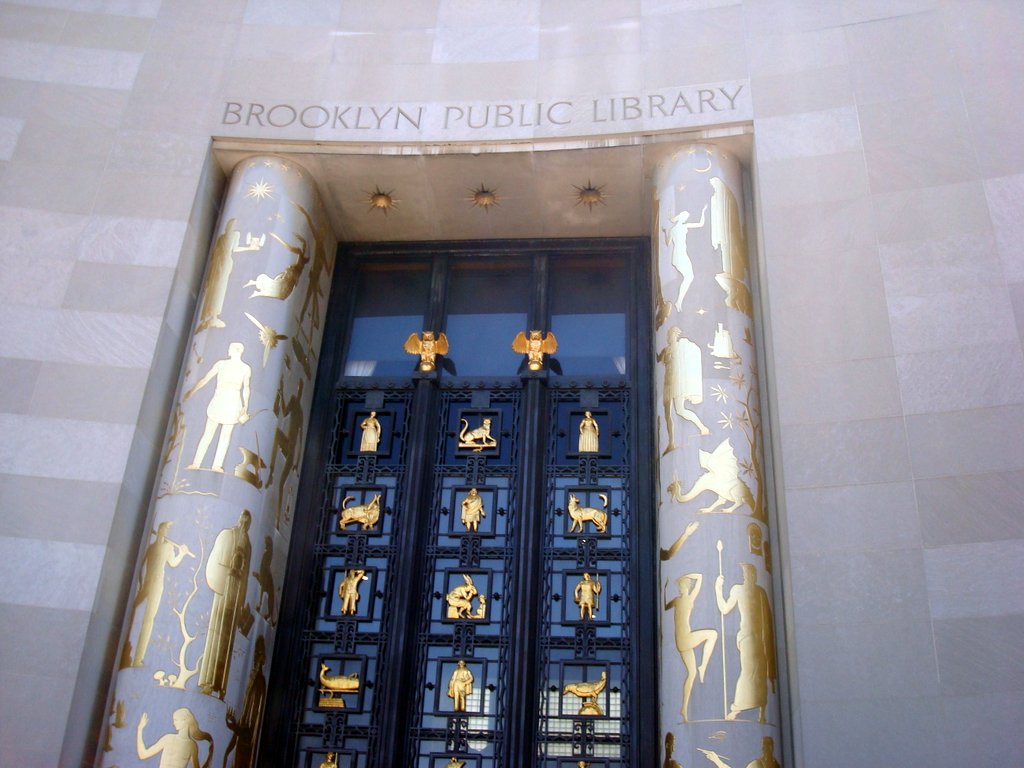The Brooklyn Public Library is in the process of creating a digital archive of the original Brooklyn Daily Eagle, which was published from 1841 to 1963 (with a gap there, toward the very end). They have materials up through 1902 up on the site and searchable, now.
We learned a bit about what has changed and what hasn’t over time as we searched through the digitized collection.
- Those awful campaigns where lots of organizations try to get a great prize by sending votes to some big company go back a long, long time. In February 1896, the students at the Pratt Institute were working to secure enough votes to win a “valuable lathe” for their school from the Lodge and Davis Machine Tool Company. Only males over 15 in the U.S. could vote. Pratt got over 20,000 people to do it — by mail.
- Neighborhood associations were a fin-de-siècle innovation. The Pratt Institute was an early supporter of associations. Back when such groups were a new innovation in civic life, in 1896, a writer at the Eagle said: “The good that such an association can do is unguessed.”
- Product endorsements from academics were once a thing. A professor of sanitary chemistry (cooking) said the smart baker uses Royal Baking Powder, in 1897.
- America has been an importer of students or an exporter of know-how since at least 1901. According to this piece, even English papers complained that Britain was falling behind the States in training. We weren’t above crowing about it, either. On the occassion of M.I.T. conducting examination tests in London, the Eagle wrote: “[The tests] are apparently a trustworthy indication of the awaking of the English mind to a better comprehension of the reasons for the success of American competition in what the Englishman calls the ‘engineering trades.'”
- Brooklyn’s Ridgewood Water Works had the finest and purest of all water. A professor at the Stevens Institute of Technology tested Brooklyn’s water supply at the Ridgewood Water Works, and reported in 1881 that he found “our water to be the purest of all that came under his examination.” Philadelphia came in second, Baltimore third and Washington fourth.
- Ladies were encouraged to be inventors. In 1902, the Women’s Educational and Industrial Union offered a $50 prize for the best labor saving device invented by a woman.
The digitization project is ongoing. Here’s how the library describes the technology and workflow it used to digitize these materials on its website:
The images went through Olive Software’s ActivePaper Archive distillation procedure, which includes Tiff image preprocessing, zoning, Optical Character Recognition (OCR), page segmentation and output to XML files. The following file formats were produced: Tiff, PDF, PNG, JPG, XML files which are ASCII text produced by OCR and marked up in XML, XML index files and location files which include bitmapping information. Olive Software’s ActivePaper Archive Document Type Definition (DTD) is based on three standard DTDs – Dublin Core, News ML/NITF (News Industry Text Format), and Preservation Mark-up Language.







